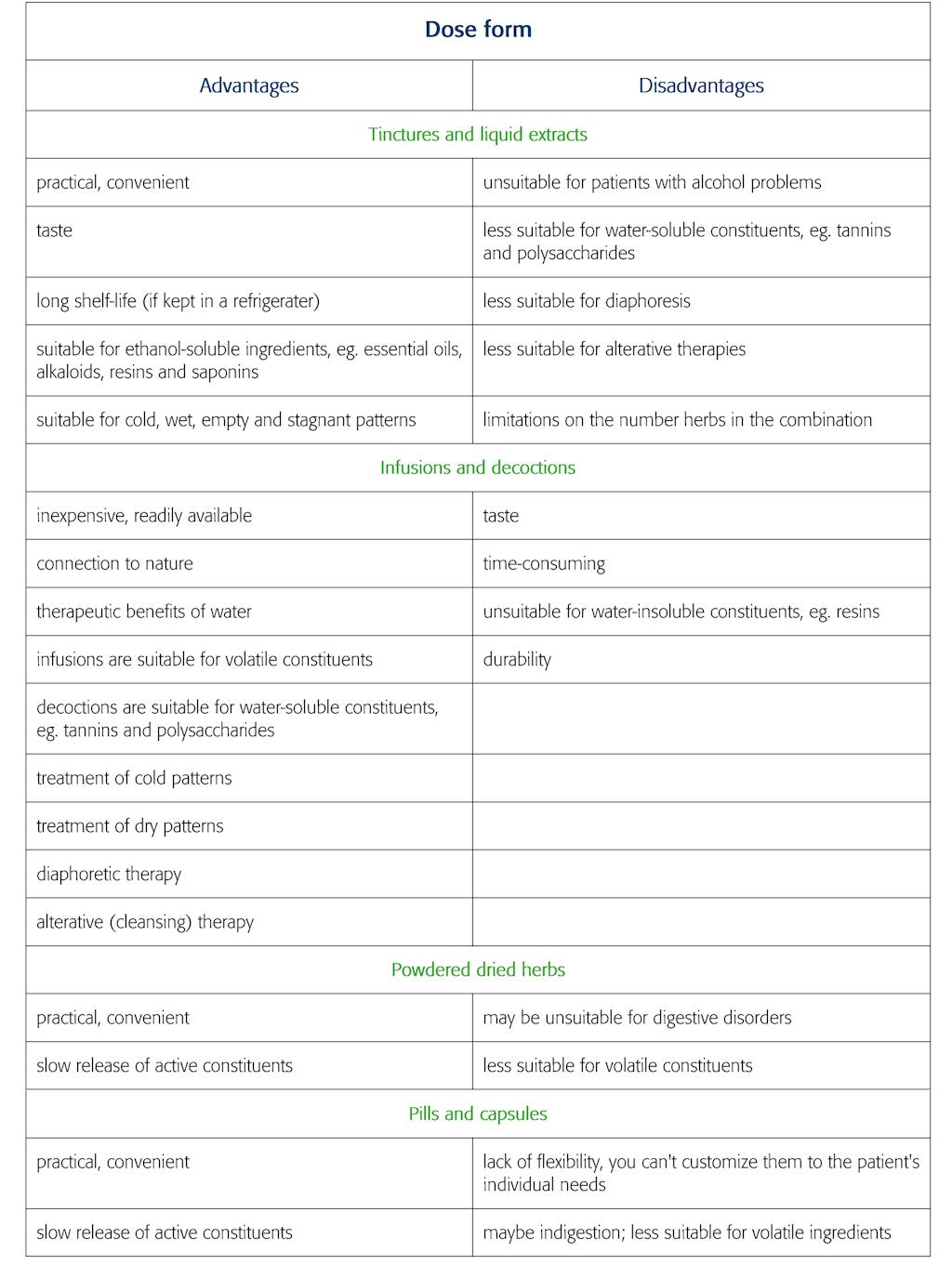Lesson 5: Dose and forms
Medicinal plants can be taken orally in a variety of forms, including:
- tinctures or liquid extracts
- chopped, dried medicinal plants as infusions or decoctions
- dried medicinal plants, as a powder dissolved or suspended in water
- dried medicinal plants as a powder in capsule form
- concentrates, either as an ointment, a powder, or in tablet form
Each form dose form has its advantages and disadvantages, which are summarized in the table below.

Capsules
Hard-shelled capsules are preferred when the patient cannot tolerate alcohol, or when the patient does not have the compliance necessary to prepare decoctions.
Children In older children, capsules can be used. However, these must be small enough for children to swallow easily.
Oil infusions
Preparation It may be possible to buy these already prepared from a pharmacist. Alternatively, the patient warms the crushed dried medicine in a suitable vegetable oil for several hours or days, depending on the method used.
Application Oil infusions are often used for topical application, such as sprains, or as ear drops; see Safety note below.
Pure essential oils
Preparation Pure essential oils are also known as aromatic oils, volatile oils, or aetheric oils. They are usually obtained from plant material by distillation, and can be bought from reputable herb suppliers.
Safety note It is extremely important to distinguish between pure essential oils and oil infusions. The components of essential oils are highly concentrated, while the concentration of active components in oil infusions is much weaker.
For example, it is contraindicated to drip pure essential oil into the ear or apply undiluted to the skin.
